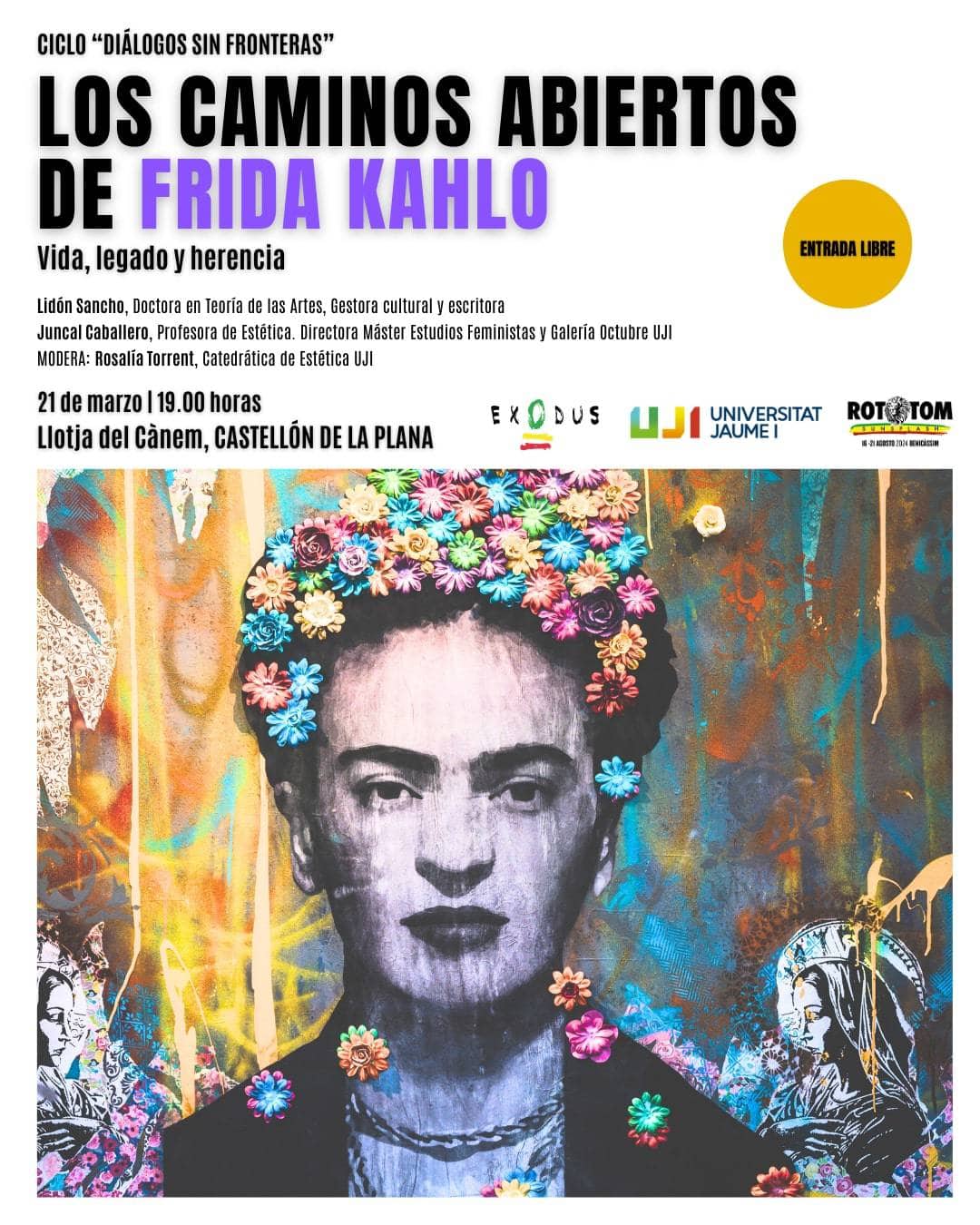The cycle Dialogues without borders organized by the festival Rototom Sunsplash and its Exodus Cultural Association is dyed purple to share and vindicate, in the middle of Women’s Month, a global icon for feminism as it is Frida Kahlo, and her legacyInternational recognition as an outstanding artist in 20th century Mexico. This 2024 marks the 70th anniversary of his death.
Women, equality and art is the triangle that supports the fourth session, with free access, of this itinerant proposal that seeks to export throughout the year and through different cities and spaces the cultural activity of the international reggae festival.
Under the heading The open roads of Frida Kahlo. Life, legacy and inheritance’.The cycle returns next Thursday, March 21, 2024 (19.00 hours) to the Llotja del Cànem in Castelló, the epicenter of its start last December. One of the most important of these open paths is “the freedom of women to play an active role in society,” she says. Juncal CaballeroProfessor in the area of Aesthetics and Theory of the Arts at the Universitat Jaume I, director and teacher of the Master’s Degree in Research and Teaching in Feminist, Gender and Citizenship Studies and director of the Galería Octubre at the UJI.
Caballero is one of the expert voices that will guide the debate, which will also be joined as speaker by Lidón Sancho, PhD in Arts Theory, cultural manager and writer. Rosalía Torrent, professor of Aesthetics and Theory of the Arts at the UJI and art critic, will moderate the session.
 “In this new meeting of ‘Dialogues without borders’ we want to delve, from the reflection and memory that throws the 70th anniversary of the death of Frida Kahlo, in the career, creation, legacy, biography and his proposal as a person of a global icon of feminism and the self-affirmation and vindication of women,” they explain from Exodus. “Frida Kahlo is the quintessential essence of women’s independence; an artist who, from her peculiar artistic language and transcendence in the defense of feminist values, connects with the spirit of Rototom Sunsplash,” they add.
“In this new meeting of ‘Dialogues without borders’ we want to delve, from the reflection and memory that throws the 70th anniversary of the death of Frida Kahlo, in the career, creation, legacy, biography and his proposal as a person of a global icon of feminism and the self-affirmation and vindication of women,” they explain from Exodus. “Frida Kahlo is the quintessential essence of women’s independence; an artist who, from her peculiar artistic language and transcendence in the defense of feminist values, connects with the spirit of Rototom Sunsplash,” they add.
“Engaged, active and creative.” This is how she defines the Mexican icon Juncal Caballero, who recognizes, however, the dent in the distortion of her legacy caused by clichés about the artist, such as “the use and abuse of her figure, turning her into an object of merchandising”.
In his speech at the Llotja del Cànem, he will discuss the role of women artists in exile in Frida Kahlo’s Mexico, such as the Spanish Remedios Varo, the English Leonora Carrington and the Hungarian Kati Horna. “All three developed a very characteristic surreal aesthetic, were standard bearers for women’s freedom and, of course, were politically committed to their own historical moment,” says Juncal Caballero.
Dialogues without Borders’ thus maintains, in the thematic axis of this new session, “the set of values and principles in which we move, always opening the range in terms of diversity of proposals and approaches,” detailed from the organization.
After inaugurating the series last December at the Llotja del Cànem in Castelló with a debate on human rights, ‘Dialogues without Borders’ made the leap to Valencia for the first time on January 26 to share a debate on religions and peace in the Aula Magna of the La Nau Cultural Center. Democracy in the face of the check of ‘technological despotism’ focused in February the third incursion of the itinerant cycle, which sets its gaze this March on the aforementioned triangle ‘woman-equality-art’ that still represents today, 70 years after her death, Frida Kahlo.

